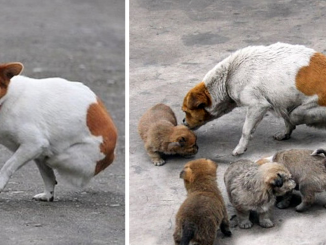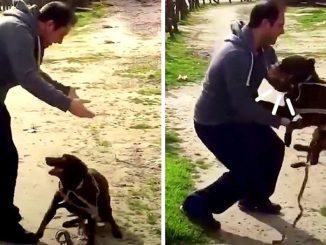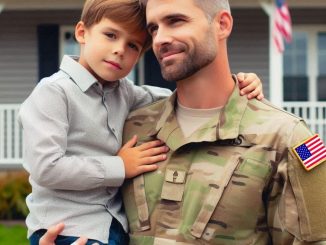
In the impoverished Gaza Strip, where most people struggle to make ends meet amid a crippling blockade, the suffering of stray dogs and cats often goes unnoticed.
Said el-Er, who founded the territory’s only animal rescue organisation in 2006, has been trying to change that. He and other volunteers rescue dogs and cats that have been struck by cars or abused and nurse them back to health – but there are too many.
So in recent weeks they have launched Gaza’s first spay-and-neuter programme. It goes against taboos in the conservative Palestinian territory, where feral dogs and cats are widely seen as pests and many view spaying and neutering as forbidden by Islam.
“Because the society is Muslim, they talk about halal (allowed) and haram (forbidden),” Mr El-Er said. “We know what halal is and what haram is, and it’s haram (for the animals) to be widespread in the streets where they can be run over, shot or poisoned.”
Islam teaches kindness towards animals, but Muslim scholars are divided on whether spaying and neutering causes harm. Across the Arab world, dogs are widely shunned as unclean and potentially dangerous, and cats do not fare much better.
Mr El-Er and other advocates for the humane treatment of animals face an added challenge in Gaza, which has been under an Israeli and Egyptian blockade since the Islamic militant group Hamas seized power in 2007. Gaza’s two million residents suffer from nearly 50 per cent unemployment, frequent power outages and heavy travel restrictions.
With many struggling to meet basic needs, animal care is seen as a waste of precious resources or a luxury at best. Mr El-Er’s group, Sulala for Animal Care, relies on private donations, which can be hard to come by.
Mr El-Er says his team can no longer keep up with the number of injured animals that they find or that are brought to the clinic. “The large number of daily injuries is beyond our capacity,” he said. “That’s why we resorted to neutering.”
On a recent day, volunteers neutered a street dog and two cats that had been brought in. There are few veterinary clinics and no animal hospitals in Gaza, so they performed the operations in a section of a pet store that had been cleaned and disinfected.
“We have shortages in capabilities, tools, especially those needed for orthopaedic surgeries,” said Bashar Shehada, a local veterinarian. “There is no suitable place for operations.”
Mr El-Er has spent years trying to organise a spay and neutering campaign but met with resistance from local authorities and vets, who said it was forbidden. He eventually secured a fatwa, or religious ruling, stating that it is more humane to spay and neuter animals than to consign an ever-growing population to misery and abuse.
Once the fatwa was issued, Mr El-Er said local authorities did not object to the campaign as a way of promoting public health and safety. The Hamas-run health and agriculture ministries allowed veterinarians to carry out operations and purchase supplies and medicine, he said.
The Gaza City municipality provided land for a shelter earlier this year. Before that, Mr El-Er kept the rescued animals at his home and on two small tracts of land that he leased.
The new shelter currently houses around 200 dogs, many of them blind, bearing scars from abuse or missing limbs from being hit by cars. At least one was adjusting to walking with a prosthetic limb. A separate section holds cats in similar shape.
The group tries to find homes for the animals, but here too it faces both economic and cultural challenges. Very few Gazans would keep a dog as a pet, and there’s little demand for cats. Some people adopt the animals from abroad, sending money for their food and care.
Over the past decade, international animal welfare groups have carried out numerous missions to evacuate anguished animals from makeshift zoos in Gaza and relocate them to sanctuaries in the West Bank, Jordan and Africa.
But there are no similar campaigns for dogs and cats, and Gaza has been sealed off from all but returning residents since March to prevent a coronavirus outbreak.
Mr El-Er’s phone rang recently and the caller said a dog had been hit by a car. Volunteers from Sulala brought it back to the shelter on the back of a three-wheeled motorbike and began treating it. Mr El-Er says they receive around five such calls every day.
Dog’s Unwavering Trust in Owner, Clinging to Him During Walk, Warms Hearts

Amidst the chaos and demands of everyday life, there are those small, precious moments that have the power to make us smile, often when we least expect it. These moments serve as reminders of our fondest memories, cherished friendships, or beloved pets. Recently, a heartwarming photograph captured one such moment, spreading joy and warmth across the internet.

The image depicts a young boy carrying his loyal dog to the market early in the morning. This simple act touched the hearts of many and prompted an outpouring of positivity, accumulating up to 17,000 likes and hundreds of heartfelt comments.

Bui Tu Anh, a viewer of the photograph, was transported back to his own childhood memories as he gazed at the image. He reminisced about his spacious garden, where he raised dogs, cats, rabbits, and chickens. The sheer joy of nurturing these animals and spending carefree moments with them was enough to create lasting, beautiful memories.
The photograph’s magic lies in the dog’s endearing gesture of wrapping its forelimbs around its owner, a gesture that melts the hearts of all who see it. Perhaps, the boy is too young to understand his pet’s fear of falling, but he knows the remedy lies in holding his furry friend close as they journey together on the bike.

The photographer behind this heartwarming image, Ngan Ha, shared her story. She had visited Don Market in Phu Binh, Thai Nguyen, and encountered this scene that touched her deeply. Being an animal lover herself, she couldn’t resist capturing this special moment. She added, “I have pet dogs at home, so whenever I see a dog, I connect with it. This boy reminds me of my own childhood.”

To Ngan Ha’s surprise, her hastily taken photos at the market resonated strongly with the online community, sparking conversations and nostalgia about youthful memories with family pets.
The charming image of the boy and his loyal companion on their market adventure reignited the fond memories of countless people who had grown up with beloved pets. They recalled the times when pets were like family members, accompanying them on village adventures, or patiently sitting in carts with three-wheel platforms.

Sharing their stories, readers fondly remembered their own pets and their unique quirks. From daring bicycle rides with dogs to cats eagerly awaiting their owners at the school gate, these tales of companionship and love filled the comments section.
One commenter, Suy Huynh, even humorously pledged to save money and raise Pitbulls to spend their lives together in blissful companionship.
Today, pets are more than just animals; they provide companionship, emotional support, and reduce feelings of loneliness and stress. They boost self-esteem and bring forth positive emotions, especially in children. While many consider their pets as family members, there are situations where the human-animal relationship becomes strained, leading to pet abandonment. Various reasons, such as lack of time, financial hardship, unexpected litters, family dynamics, or changes in the household, can result in this unfortunate outcome.

However, the experience of abandoned animals on the streets varies greatly. Some are fortunate enough to find new loving homes, while others face a harsher fate. The challenges and outcomes these animals encounter serve as a poignant reminder of the importance of responsible pet ownership and the need to support animal welfare initiatives.



Leave a Reply